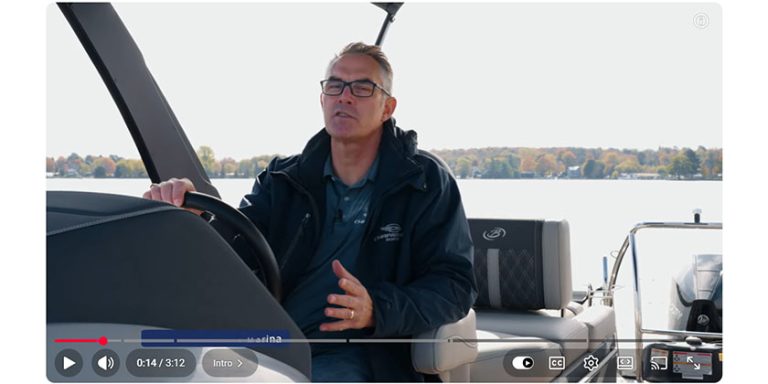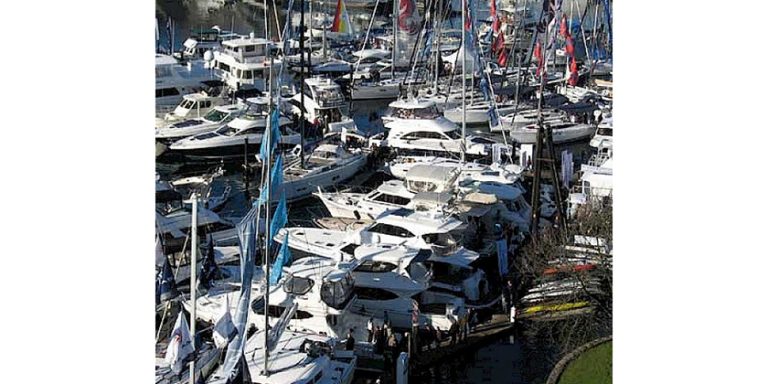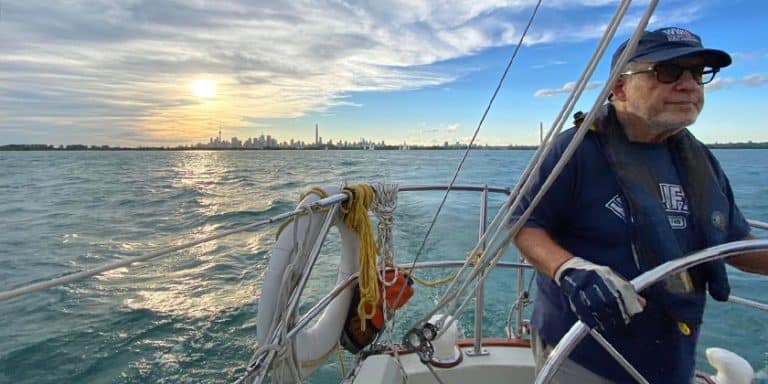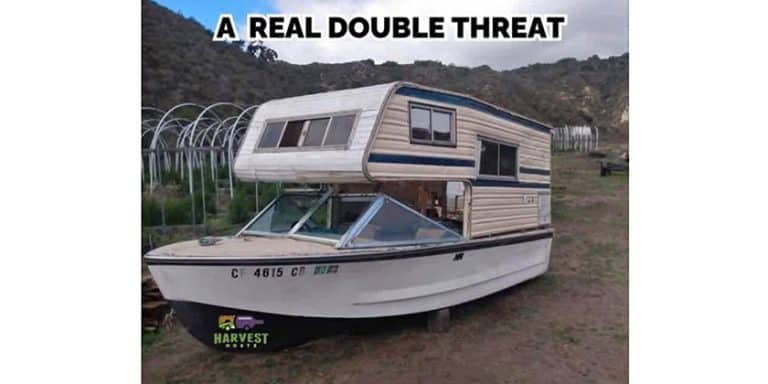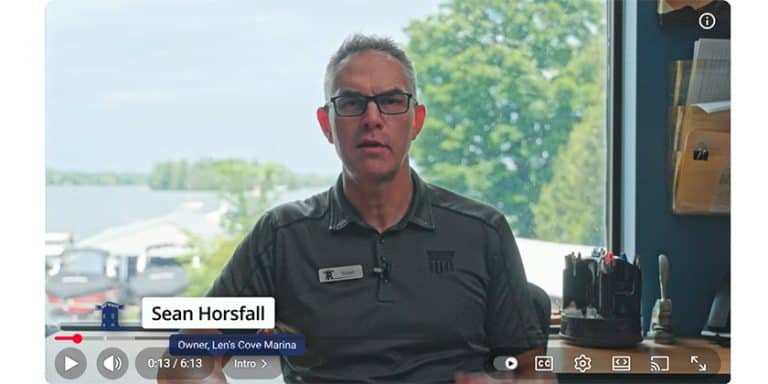Buying with a Yacht Broker

Whether you’re a new boater or an old salt, you have much to gain by trusting your boat search to a knowledgeable professional.
I’m a bit of an evangelist when it comes to boats – I believe that if you’re lucky enough to live near water, salt or fresh, owning a boat is the true meaning of life.
I’ve never given up the faith, but after owning the same 35’ sloop for 30 years, things had changed. With two teenage boys who had somehow grown big, the space aboard Sway had grown small. On rainy days, especially around dinner hour, the scene on board was right out of A Night at the Opera, when the Marx Brothers and half the ship’s crew try to fit into a small cabin. We thought about buying a cottage to enjoy island life or getting a bigger boat. The boat won – it was really no contest.
So began our long journey to buy a bigger boat. Although I had chatted with numerous brokers over the years at boat shows, I'd never dealt directly with a broker when it came to buying a boat. The first boat I bought was from an individual and the second was from the boat manufacturer. When it was time to start calling brokers, I was open-minded. The first two or three I spoke with were very helpful and obliging with information about specific boats. Although I ran into other brokers who were less forthcoming and helpful, my overall experience was positive.
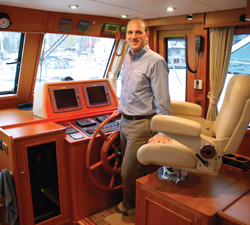 In a meeting with broker and yacht designer David Walters of Fort Lauderdale, he asked what stage of the hunt I was at. Curious question, I thought. How hard can it be to buy a good boat? I had been looking for a couple of months and thought I was closing in on something. But Walters was right. It took almost two years of looking at boats in Canada and the US before we finally had a deal on the boat we wanted – a Tayana 48 in San Francisco.
In a meeting with broker and yacht designer David Walters of Fort Lauderdale, he asked what stage of the hunt I was at. Curious question, I thought. How hard can it be to buy a good boat? I had been looking for a couple of months and thought I was closing in on something. But Walters was right. It took almost two years of looking at boats in Canada and the US before we finally had a deal on the boat we wanted – a Tayana 48 in San Francisco.
Before you contact a broker, do some serious thinking about what you want in a boat and what kind of boating you hope to do. Beyond choosing power or sail, think about where and how you plan to boat or cruise; the size of boat you need; accommodations and amenities for you and your partner or family, as well as guests; and of course, your budget for the boat and associated costs such as moorage, insurance and maintenance.
If you’re an experienced boater, you may already know the answers to these questions – you may have been thinking about them for a long time, in fact. If you’re a newbie, even a general idea about the kind of boating you hope to do will give your broker a starting point from which they can steer you toward the right boat.
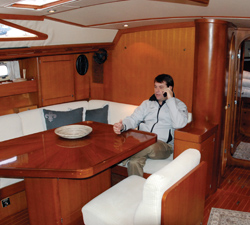 In our case, we were looking for a centre-cockpit sailboat with a generous aft cabin and a traditional teak interior. I'd never really been a fan of centre-cockpit boats but designs had improved in the ‘90s and usually included a great aft cabin with ensuite head. I preferred a draft of about six feet, ideal for access to the small anchorages Anne and I like to visit. This sort of boat is rare in BC so our search focused mostly in the US; our BC broker never stopped digging up prospects for us, mostly on the West Coast.
In our case, we were looking for a centre-cockpit sailboat with a generous aft cabin and a traditional teak interior. I'd never really been a fan of centre-cockpit boats but designs had improved in the ‘90s and usually included a great aft cabin with ensuite head. I preferred a draft of about six feet, ideal for access to the small anchorages Anne and I like to visit. This sort of boat is rare in BC so our search focused mostly in the US; our BC broker never stopped digging up prospects for us, mostly on the West Coast.
The Relationship
The broker-client relationship really starts with trust – you cannot work with someone who doesn't understand what you want in a boat if you’re buying, or know the market for your boat if you’re selling. Pat Sturgeon, who owns a brokerage in Mississauga, has been selling boats for more than 30 years and his advice for a buyer is to visit a number of brokers and get a feeling if there is a potential for a relationship.
 "The process is sometimes long but once you establish that the person you go with to see boats is the person you are most comfortable with and trust, then you can rely on his or her advice on which model of boat best suits your needs and budget," he says. "Keep in mind that almost all brokers will work with each other on a split commission basis, so you don’t need to switch from broker to broker depending on the location of the boat, even if it’s in Europe. We all work together."
"The process is sometimes long but once you establish that the person you go with to see boats is the person you are most comfortable with and trust, then you can rely on his or her advice on which model of boat best suits your needs and budget," he says. "Keep in mind that almost all brokers will work with each other on a split commission basis, so you don’t need to switch from broker to broker depending on the location of the boat, even if it’s in Europe. We all work together."
Jack Pady of Pady Marine in Penetanguishene, Ontario says establishing a relationship with a broker can require some good, frank conversations. For sellers, it may be difficult to accept the reality of parting with a long-owned boat for a price that reflects hard market realities. For buyers, it might be reconciling expectations versus budget.
Brokers also face the challenge of convincing sellers to ensure that their boats are always presentable and ready to show: clean and cleared of personal effects that aren’t part of the sale.
Dave Worland of Vancouver’s Grand Yachts says that, assuming it’s in decent condition, a boat only needs three things to show well: "To be clean, clean and clean.”
“The client often includes the willing-yet-reluctant spouse,” says Worland. “The first hint of mustiness or odor coming from the bilge or heads will turn off a buyer quickly – cleaning a boat is an inexpensive yet effective part of preparation."
Worland is one of two BC members of the Certification Advisory Council of the Certified Professional Yacht Brokers, a North American organization that promotes cooperation among brokers and a professional standard of conduct. The work of CPYB and related organizations such as Boating Ontario Dealers and the BC Yacht Brokers Association has helped ensure the boat industry remains fairly healthy in North America despite the prolonged recession.
Brokers look for boats all over North America and, because the Canadian and US dollars are at par, the deals can now be in Fort Lauderdale or down the street. If the deal involves a local broker and one in another province or in the US, the process will probably go a lot smoother if the brokers are both members of CPYB, largely because of the certification process and agreed-upon code of conduct.
“If the other broker on the deal is CBYB-certified then the outcome is more predictable, and certainly the comfort level is better for both parties," says Sturgeon.
The certification process that many broker organizations now employ resulted from efforts by the BCYBA over 25 years ago, when brokers in that province began to lay formal groundwork for the selling of boats. BCYBA president Kevin Pritchard says his organization was one of the first to develop courses and a test for prospective brokers.
"We had to try and organize the industry here before the government decided to regulate it for us," says Pritchard. Out of those efforts brokers agreed on rules of conduct, common paperwork, separate trust accounts, and a course and exam so comprehensive it became the template used by many other yacht brokerage organizations in North America.
The Search
Scouring yacht magazines and visiting online listing services is part of the fun of finding a new boat, and over time it can help the buyer learn a lot and make good comparisons of models, equipment and price. It also saves time for client and broker because it helps the client identify the type of boat they are looking for and narrows the selection so the broker can find the right boat at the right price.
"There used to be a time when I would stand on a boat in a yard and call my client and tell him I was standing on his next boat,” explains Sturgeon. “Now there are too many boats on the Internet for a broker to weed out. It’s just not practical to ask your broker to scour the Internet as much as you want. I suggest that the customer send links to the boats that interest them, then let the broker contact the listing broker and find out if the boat is worth pursuing for the client."
Worland says that while a broker needs to know boats, it’s also critical they know people.
"You have to be very direct with your client about what they are trying to achieve in their boating experience. Don't try and sell your client a performance boat when what they really want is comfort.
"I try and look at everything about the client. If the person drives a Porsche it doesn't necessarily mean they want a fast boat. It might be a reflection of the person's values such as engineering, quality and status."
If, as a buyer, you find a boat listing you like on the Internet, print it out before your broker talks to the listing broker. Your broker should then try to get as much information as possible about the boat’s condition and equipment, including high-resolution images of the exterior and interior of the boat so you have the best picture possible of the boat’s overall condition.
The Deal
Once buyer and broker have located boats that fit the bill and are worth looking at, the broker is responsible for arranging the key steps in the purchase process: initial inspection, offer, survey and sea trial, removal of subjects, documentation and closing. A broker will ensure all of this gets done – and remember that the seller pays the brokerage commission, not the buyer.
In general, brokers agree that condition trumps equipment. Equipment can be replaced but a boat in poor shape is much more of a challenge for a buyer. Brian Huse of Freedom Yachts in Sidney, BC says buyers will almost always gravitate to the boat in good repair with the expectation it will pass survey. Because of the cost and time involved in this step, this can be a significant hurdle. It’s the moment when buyers and sellers should expect brokers to earn their commissions by sorting out deficiencies when emotions can run high on both sides.
"The vessel should survey with no immediate need for repair, modification or service. If the boat is found to need immediate attention, the cost to remedy is typically covered by the seller in full,” says Huse. “This is simply because if the vessel is found to be in not usable condition, the seller has to fix the problem before the boat can be sold to anyone."
Huse makes important points about deficiencies and the timing of bringing them into the negotiation process: "A buyer has the right to expect a newer boat to be in better condition with less wear and tear. If the boat is represented as turnkey and the negotiated price reflects this, then the buyer has a right to expect the seller taking a greater role in funding the costs to resolve any deficiencies.”
If the buyer brings a list of issues to the seller at the time of an offer, the seller can assume the buyer has taken these into account and will not later ask for a concession on the price. But serious issues that arise from a survey after a price has been agreed upon should be up for negotiation. The buyer should have a good idea (such as repair estimates) of the cost of remedying deficiencies. If the repair adds to the value of the boat, the costs may be shared by the seller and the buyer, explains Huse.
The buyer really only has power up to the point of removal of subject clauses, so it’s important to go over the boat specifications and the surveyor's report very carefully with your broker. If there is an issue that could be a deal-breaker, brokers will bend over backwards to sort it out rather than lose a deal and commissions.
Looking at boats is usually the fun part of a boat search. But because there is much at stake for both seller and buyer, the actual purchase process can have its challenges and anxieties. The support and guidance of a knowledgeable and trusted broker can smooth out the process and ease the anxieties – to help you launch a rewarding boating experience.
Tips for Buying with a Broker
• Think about what you want in a boat before you start.
• Take time to locate a broker you’re comfortable with.
• Be frank about your expectations – and your budget.
• Do some of your own searching – let your broker make contact when you see a boat you like.
• Be thorough when you inspect a boat – take photos and notes you can consult later.
• Rely on your broker’s advice on pricing and offers – they do this all time.
• Approach sea trial and survey with an open mind – they rarely uncover deal-breakers.
• Consider the surveyor’s report carefully – let your broker guide negotiations over any deficiencies.
• When the perfect boat is yours, buy your broker a drink!
Photo Captions:
Photo 1: The fun part of a boat search – a sea trial on San Francisco Bay.
William Kelly Photo
Photo 2: Yacht broker Brian Huse is based in Sidney BC.
William Kelly Photo
Photo 3:Broker Dave Worland of Vancouver is a member of the Certification Advisory Council of the Certified Professional Yacht Brokers, which promotes cooperation and professional standards among brokers.
William Kelly Photo
Photo 4:Jack Pady operates his own brokerage in Penetanguishene, Ontario.
By William Kelly

